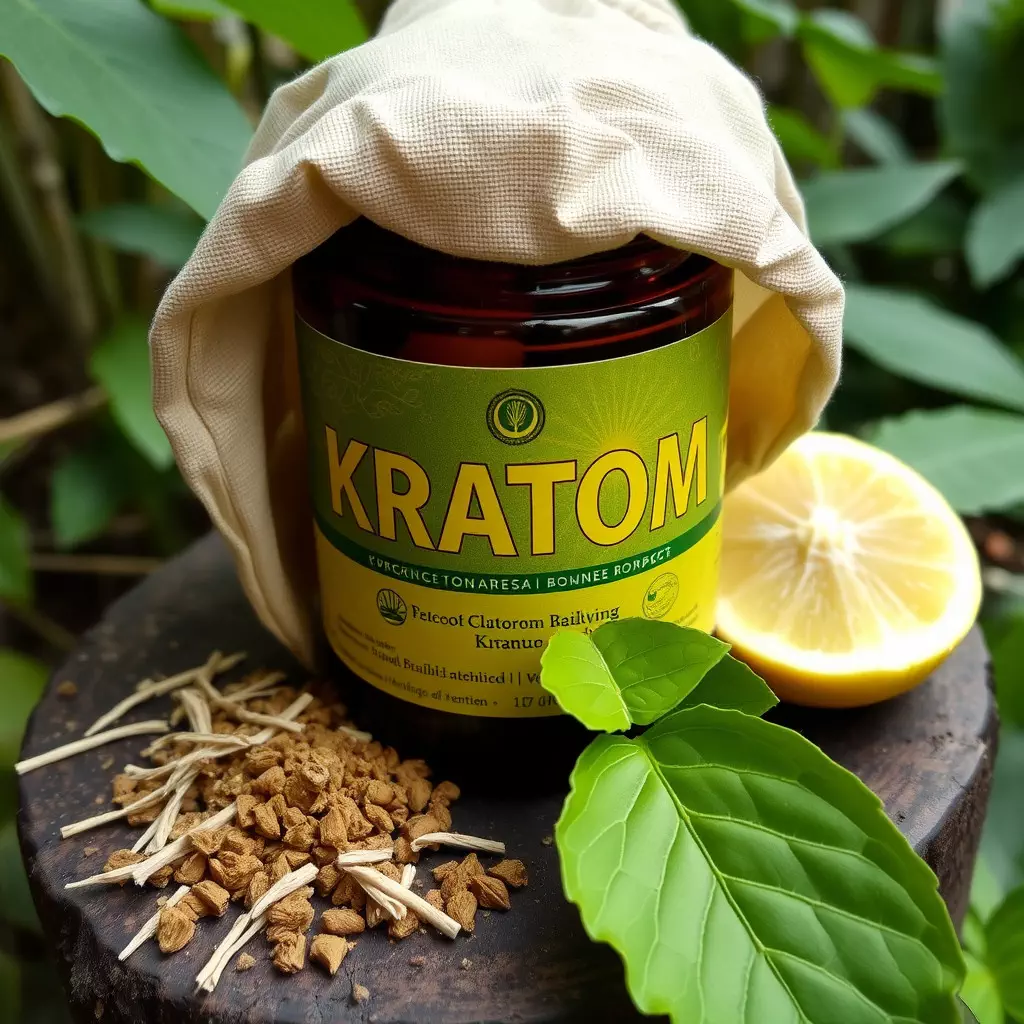Kratom's legal status in Colorado is complex, with state laws allowing its use but local ordinances potentially overriding this. Consumers must verify the legality within their specific municipality. Derived from the Mitragyna speciosa tree, kratom contains alkaloids like mitragynine and 7-hydroxymitragynine, which may interact with opioid receptors in the brain, leading to reported enhancements in mental focus and clarity. The scientific community is actively researching kratom's effects, emphasizing the need for further studies to fully understand its impact on cognitive function. While the FDA has not approved kratom for medical use, it remains a topic of debate and legal scrutiny, with the DEA classifying it as a Schedule I substance at the federal level. In Colorado specifically, users should be aware that while state laws do not explicitly control kratom, local regulations could restrict its use. Prospective users are advised to consult healthcare professionals due to kratom's complex pharmacology and potential for interactions with other substances or medications. The legality of kratom in Colorado is subject to change, so it's crucial to stay informed about the most current laws affecting its use.
exploring the potential cognitive benefits and legal status of kratom within Colorado’s framework, this article delves into the impact of this botanical substance on mental focus and clarity. Kratom, derived from the Mitragyna speciosa tree, has garnered attention for its stimulant and nootropic properties. As we navigate the intricacies of its legality across Colorado, we also consider how it may offer a natural edge in cognitive function enhancement for residents seeking to sharpen their mental acuity.
- Is Kratom Legal in Colorado and What Are Its Effects on Mental Focus and Clarity?
- Understanding Kratom's Impact on Cognitive Function and Legality Across Colorado
- Exploring the Therapeutic Potential of Kratom for Enhanced Mental Acuity in Colorado Residents
Is Kratom Legal in Colorado and What Are Its Effects on Mental Focus and Clarity?

Kratom, a natural substance derived from the leaves of the Mitragyna speciosa tree native to Southeast Asia, has garnered attention for its potential effects on mental focus and clarity. In Colorado, the legal status of kratom is subject to statewide and local regulations. As of my knowledge cutoff in early 2023, kratom is legal in Colorado, but its legality can vary by municipality within the state. It’s imperative for individuals to verify the specific laws in their local jurisdiction before purchasing or consuming kratom products.
The effects of kratom on mental focus and clarity are a subject of ongoing research and anecdotal reports. Users often report that certain strains of kratom can enhance concentration, reduce distractions, and improve cognitive performance. The alkaloids found in kratom, such as mitragynine and 7-hydroxymitragynine, are believed to interact with the brain’s opioid receptors, which may contribute to these reported effects. However, it’s important to approach the use of kratom with caution due to its complex pharmacology and potential for side effects, especially when used alongside other medications or substances. Users should be aware that the FDA has not approved kratom for any medical condition, and more research is needed to fully understand its impact on mental clarity and focus. Those interested in trying kratom should do so responsibly, preferably under the guidance of a healthcare professional.
Understanding Kratom's Impact on Cognitive Function and Legality Across Colorado

Kratom, a plant originating from Southeast Asia, has garnered attention for its potential cognitive benefits, particularly in enhancing mental focus and clarity. Mitragyna speciosa, commonly known as kratom, contains alkaloids that may influence the brain’s neurotransmitters, leading to heightened alertness and concentration. Users report that certain strains of kratom can provide a stimulating effect, which may assist in improving mental clarity and focus. However, the impact of kratom on cognitive function is an area of ongoing research, as its effects can vary based on individual physiology and dosage.
When considering the use of kratom for cognitive enhancement, it’s important to address its legal status. As of the knowledge cutoff date in early 2023, the legality of kratom in Colorado is subject to change, as state laws can evolve. In Colorado, kratom is currently not explicitly controlled at the state level; however, local jurisdictions may have their own ordinances regarding its sale and use. It’s crucial for individuals interested in using kratom to consult the most current legal guidelines specific to their municipality within Colorado. On a federal level, the Drug Enforcement Administration (DEA) has placed kratom in the Schedule I category of controlled substances, which means it is illegal to manufacture, possess, or distribute kratom under federal law. Nevertheless, this designation has been met with significant public debate and legal challenges, leading to varying degrees of regulation across different states and localities. Users should always verify the latest legal status of kratom in their area to ensure compliance with local, state, and federal laws.
Exploring the Therapeutic Potential of Kratom for Enhanced Mental Acuity in Colorado Residents

Kratom, a plant originating from Southeast Asia, has garnered attention for its potential cognitive-enhancing properties. Colorado residents have shown a growing interest in this natural substance as a means to improve mental focus and clarity. The therapeutic potential of kratom stems from its active alkaloids, mitragynine and 7-hydroxymitragynine, which are believed to interact with various receptors in the brain. These interactions may lead to heightened alertness and a sharper mind, benefits that could be particularly appealing to individuals seeking natural alternatives to conventional focus-enhancing drugs.
Is kratom legal in Colorado? The legal status of kratom is subject to state and federal regulations. As of my knowledge cutoff date, kratom is not a controlled substance under the federal Analogue Act; however, local laws can vary. In Colorado, kratom is currently legal at the state level, with some cities having their own ordinances. It’s important for Colorado residents to stay informed on any legislative changes that may affect the availability of kratom products within their jurisdiction. Users interested in exploring kratom for its cognitive benefits should prioritize responsible use and consider consulting healthcare professionals, especially if they have pre-existing health conditions or are taking other medications. The evolving landscape of kratom’s legal status and scientific research into its effects continue to shape the discourse around its use as a tool for enhanced mental acuity.
In conclusion, the exploration of Kratom’s effects on mental focus and clarity, particularly within the context of its legality in Colorado, presents a nuanced picture. While the therapeutic potential for enhanced cognitive function is promising, it is imperative to approach its use with caution and informed consent. The varying legal statuses across different jurisdictions within Colorado underscore the need for clear regulations that balance public health with individual rights. As such, individuals interested in Kratom as a tool for mental acuity should seek guidance from healthcare professionals and stay informed on the evolving legal landscape. With responsible use and proper oversight, Kratom may hold potential benefits for those seeking improved mental clarity; however, further research is essential to fully understand its effects and risks.






